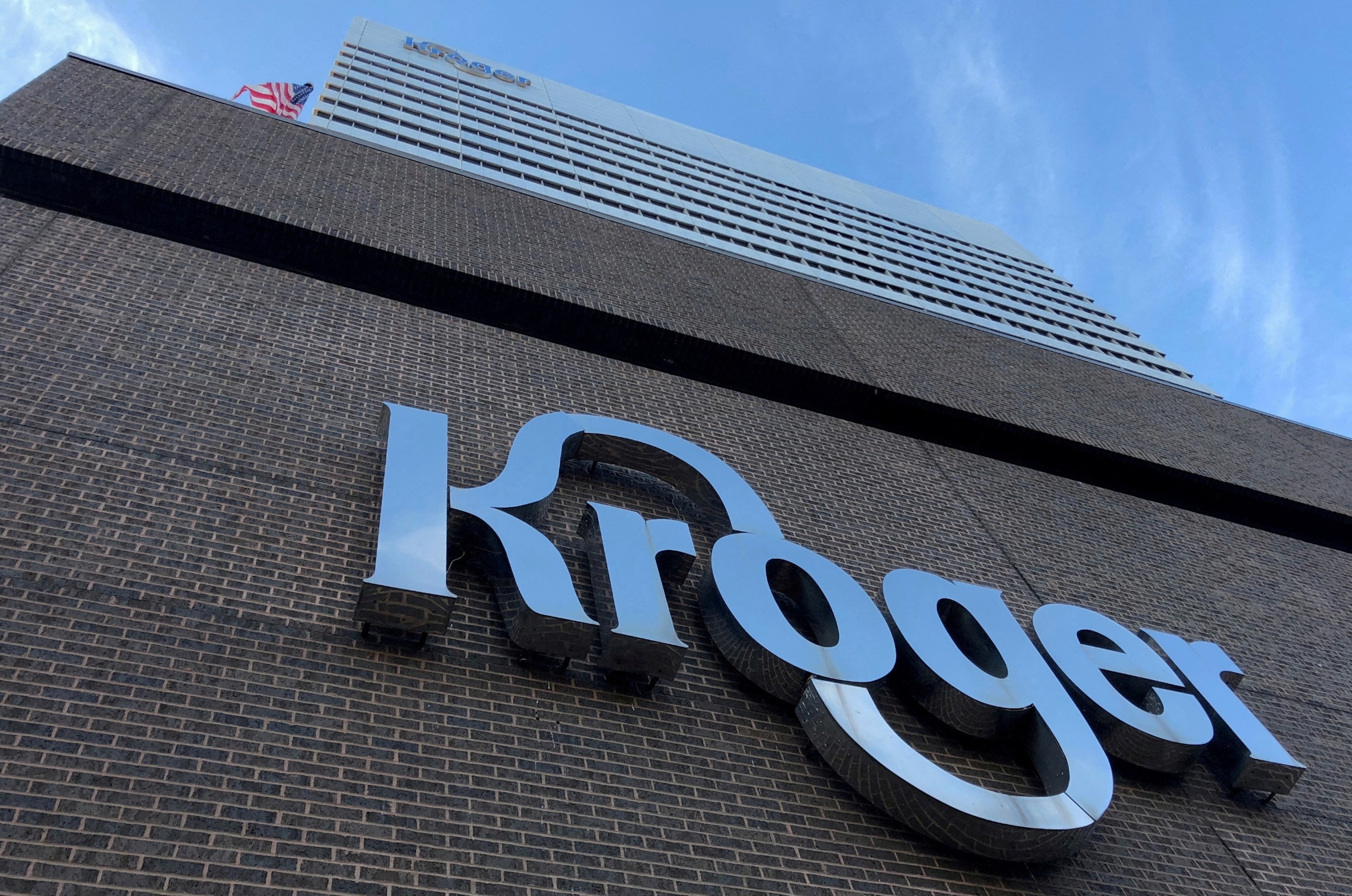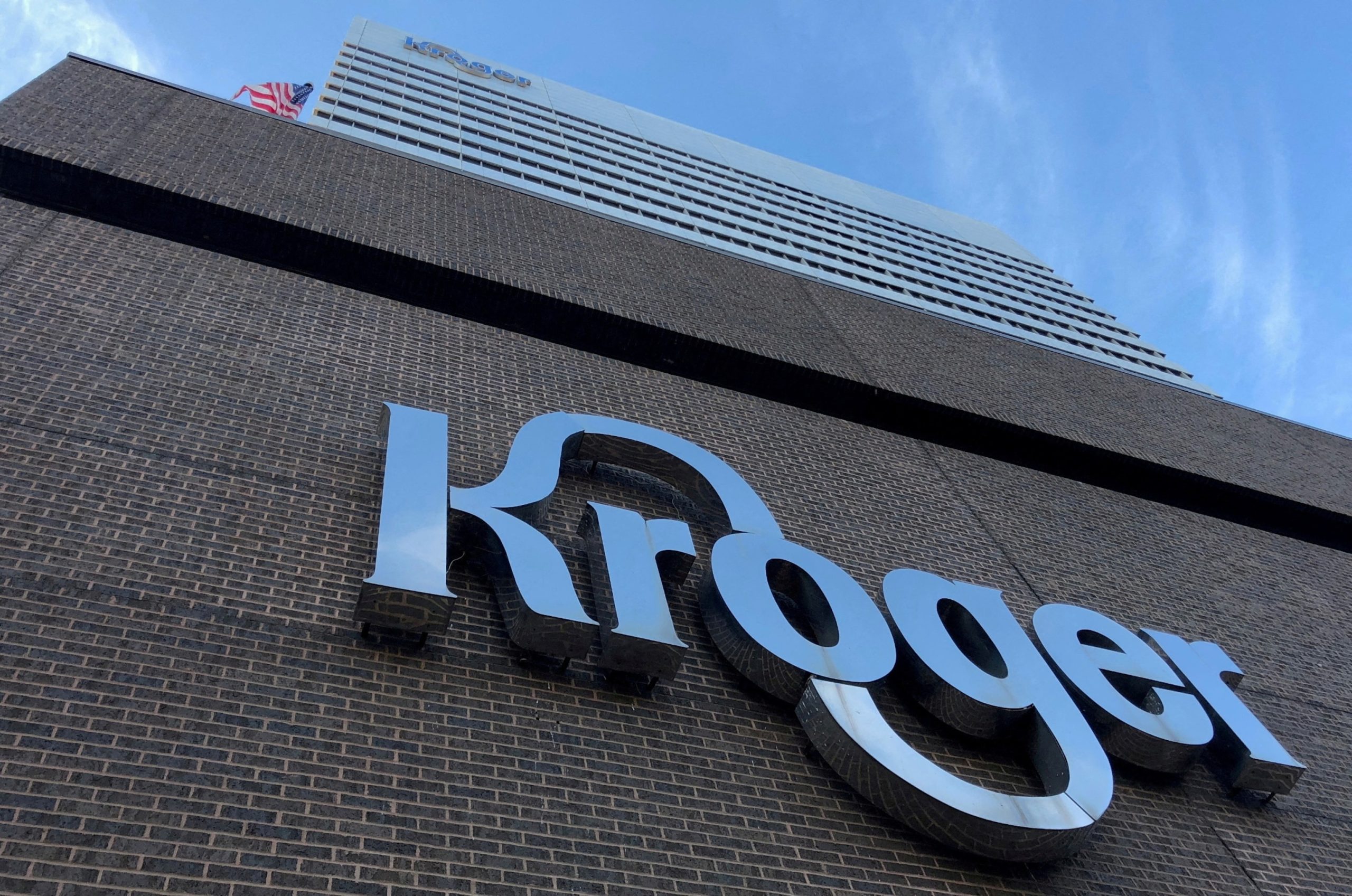The Federal Trade Commission on Monday sued to halt the Kroger and Albertsons merger, according to court documents filed in federal court. The merger would represent two of the largest grocery store chains in the United States combining forces.
Kroger announced that it intended to acquire Albertsons for $24.6 billion in October 2022, and that deal, according to the FTC, would lead to higher grocery prices for millions of Americans.
“This supermarket mega merger comes as American consumers have seen the cost of groceries rise steadily over the past few years. Kroger’s acquisition of Albertsons would lead to additional grocery price hikes for everyday goods, further exacerbating the financial strain consumers across the country face today,” said Henry Liu, Director of the FTC’s Bureau of Competition. “Essential grocery store workers would also suffer under this deal, facing the threat of their wages dwindling, benefits diminishing, and their working conditions deteriorating.”

FILE PHOTO: The Kroger supermarket chain’s headquarters is shown in Cincinnati, Ohio, U.S., June 28, 2018. REUTERS/Lisa Baertlein/File Photo/File Photo
Lisa Baertlein/Reuters
Kroger stores are in 36 states and include companies like Fred Meyer, Fry’s, Harris Teeter, King Soopers, Kroger, and Quality Food Centers. Albertsons operates stores in 35 states under regional names including Albertsons, Haggen, Jewel-Osco, Pavilions, Safeway and Vons.
If the merger were completed, Kroger and Albertsons would operate more than 5,000 stores and approximately 4,000 retail pharmacies and would employ nearly 700,000 employees across 48 states, according to the FTC.
Kroger says the FTC lawsuit will “actually harm” the Americans instead of helping them, according to a statement released after the lawsuit was filed.
“The FTC’s decision makes it more likely that America’s consumers will see higher food prices and fewer grocery stores at a time when communities across the country are already facing high inflation and food deserts,” the statement reads. “In fact, this decision only strengthens larger, non-unionized retailers like Walmart, Costco and Amazon by allowing them to further increase their overwhelming and growing dominance of the grocery industry.”
Kroger says customers would benefit from lower prices and more choices following the merger close. The company says it has committed to investing $500 million to begin lowering prices Day One post-close, and an additional $1.3 billion to improve Albertsons stores.
California Attorney General Bonta issued a statement calling the proposed merger “bad for workers.”
“This megamerger is bad for workers, for agricultural producers, and for California communities. In some markets in Southern California, Kroger-Albertsons is expected to be the only one-stop grocery option. Today, we are going to bat for a more just and competitive economy, one where companies need to compete for labor and where prices and service matter,” Bonta said in the statement.
Bonta and the attorneys general from Washington D.C., Illinois, Maryland, Nevada, New Mexico, Arizona, Oregon and Wyoming joined the lawsuit.
“Bottom line: this merger will benefit the shareholders of these companies, not regular Arizonans. I am proud to stand with the FTC and my fellow attorneys general in suing to block this anticompetitive, anti-consumer, and anti-worker merger,” Arizona Attorney General Kris Mayes said.
Sen. Dan Sullivan, R-Alaska., applauded the FTC lawsuit.
“The FTC found that the merger would likely reduce competition and raise prices—putting further strain on working families in our state who are being crushed by the high inflation caused by the Biden administration’s policies. I appreciate and support the FTC’s thorough analysis and decision to take action to block this merger for the benefit of Alaskans,” Sullivan said.
The Federal Trade Commission (FTC) has recently filed a lawsuit to prevent the proposed merger between grocery giants Kroger and Albertsons. The merger, which was announced in late 2021, would create one of the largest grocery chains in the United States, with over 2,800 stores and annual revenue of more than $100 billion.
The FTC’s decision to challenge the merger is based on concerns that it would reduce competition in the grocery industry and lead to higher prices for consumers. According to the agency, the combined company would have a dominant market share in several regions, giving it the ability to raise prices and reduce choices for consumers.
In a statement, FTC Chair Lina Khan said, “This merger would eliminate important competition in the grocery industry, leading to higher prices and fewer choices for consumers. We are committed to protecting competition and ensuring that consumers have access to affordable and diverse options when it comes to purchasing groceries.”
The lawsuit is just the latest in a series of challenges to large mergers in the grocery industry. In recent years, the FTC has blocked mergers between other major players, such as Whole Foods and Wild Oats, citing similar concerns about reduced competition.
Both Kroger and Albertsons have expressed disappointment with the FTC’s decision and have vowed to fight the lawsuit in court. In a joint statement, the companies said, “We believe that this merger is in the best interest of our customers and shareholders, and we will vigorously defend our right to proceed with it.”
The outcome of the lawsuit remains uncertain, but it is clear that the FTC is taking a strong stance against consolidation in the grocery industry. As consumers continue to rely on grocery stores for their daily needs, it is important that competition is preserved to ensure that they have access to affordable and diverse options. The outcome of this case will have far-reaching implications for the future of the grocery industry and the choices available to consumers.



